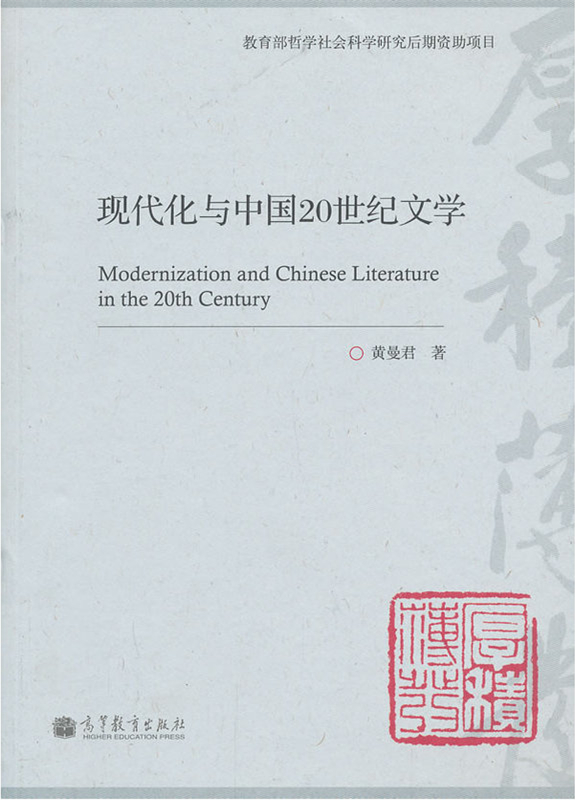Poetics in Chinese literature

Modernization and Chinese literature in the 20th Century
Author: Huang Manjun
Publisher: Higher Education Press
Huang Manjun (1935-2010) was a poet and outstanding expert in literary research. Basing his work on political and social changes, he examined the modernization of Chinese literature in the 20th century.
In his posthumous work Modernism and Chinese Literature in the 20th century, Huang argued that realism dominated 20th century Chinese literature, but it also drew upon romanticism, modernism, post-modernism and neo-classicism.
Chinese literature encountered modernity in the 20th century. If understanding and interpreting modernity and its ideological origins were the key tasks of literary research community, then defining realism was a key part of Chinese literary discourse.
Realist works dealt with real life and thus constituted the basic form of writing. In the early 1980s, Huang published his work On Shading’s Realism. He criticized the narrow “pseudo-realism” prevalent during that time, injecting vitality into the revival of realist writing. In fact, many great writers follow the rules of realistic aesthetics to probe into the darker side of humanity.
Poetics is a key term in Huang’s work. Narrowly speaking, the term refers to poetic characteristics. Generally speaking, it refers to aesthetics and artistry that stands apart from logic. For romantic philosophers, poetics was a kind of ontology. They interpreted the world to be poetic, as Martin Heidegger chanted Johann Hölderlin’s poem “Full of merit, yet poetically, man dwells on this earth.” In literary research and criticism, poetic theories refer to poetic and ascetic interpretations of literature, and can also be called poetic literary theories or criticism. Chinese poetics theories originated from Wang Guowei’s critique of A Dream in the Red Mansions in 1904. He attempted to build a hyper-realistic world that was subject to beauty and literary poetics. After Wang, writers such as Zhou Zuoren (1885-1967), Li Jianwu (1906-82) and Shen Congwen (1902-88) inherited this tradition. They interpreted literature with poetics. So did Xie Mian, born in the 1940s, Geng Zhanchun in the 1950s and Xie Youshun in the 1970s.
In this book, Huang attributed the revolutionary character of literature to modernism. Throughout the history of Chinese and foreign literature, revolution and literature had disputes on reality and discourse. Since the 1990s, there have been consistent disputes on whether to reform literature or not. As Huang put it, on the one hand, modernization includes revolution, yet cannot diminish it. On the other hand, revolution promotes modernization, but cannot replace it. Modernization is in essence human modernization.
Huang also adopted modernism theories to investigate the birth, development, deviations and related problems of the Chinese literature in the 20th century.
In addition, many researchers simplified literary modernity to pure aesthetic modernity, abandoning the external dimensions of literary research. Huang pointed out that literary and artistry modernization should involve revolutionary, political, national and popular characteristics of literature.

 PRINT
PRINT CLOSE
CLOSE